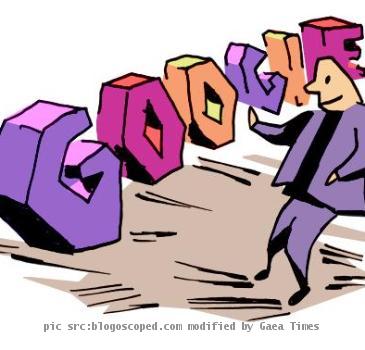Hawaii pings Google in hopes of improving its Internet lag behind rest of the nation
By Mark Niesse, APSaturday, March 27, 2010
Hawaii searching for Internet answers with Google
HONOLULU — Stuck in the Internet slow lane, Hawaii and its sluggish network are hoping Google will ride to the rescue.
Through online petitions, a Facebook fan page and a YouTube video by the governor, Hawaii wants to persuade Google to choose the islands for one of its experimental fiber-optic networks, which could bring Internet speeds 100 times faster than those currently available to most Americans.
The search engine giant is launching the experiment to test new ways to build fiber networks and to demonstrate the power of quick Internet to phone and cable companies. It invited all comers to say how they might benefit, and hundreds of communities from across the country have submitted bids arguing that they’re the best location for the experiment.
Hawaii’s efforts may be a tough sell. The state’s surfing speeds are among the slowest in the country, and legislative efforts to improve speeds haven’t borne fruit. And the isolation of being in the middle of the Pacific Ocean could make building a new network impractical.
But those disadvantages also show how much Hawaii would benefit if Google picked the state.
“With high-speed Internet, you can work from anywhere. What better place than Hawaii to work from wherever you are?” asked Mike Curtis, chief operating officer of Web application company SDC Hawaii, whose Twitter feed has promoted the campaign to draw Google to the islands.
Hawaii’s efforts seeking Google’s favor haven’t been as showy as some of its competitors from across the country. For example, Topeka, Kan., informally renamed itself “Google, Kansas” for the month of March.
Instead, Hawaii’s application emphasizes that it would cut the red tape and hasten regulatory approvals through both county and state governments, clearing the way for Google to quickly roll out this premiere service.
“All the government bodies are saying, ‘We want Google to come here and we want to make it as painless as possible,’” said Ron Boyer, director of the state Department of Commerce and Consumer Affairs. “In Hawaii, you have everybody on board. That makes us unique.”
Frankly, Hawaii could use Google’s help.
Hawaii ranked 47th in download speeds nationwide in 2009, according to Speed Matters, a Web site run by the Communications Workers of America that tests and compares Internet users’ connection speeds.
Last year, a task force’s recommendations to improve broadband service bogged down in the legislature. That proposal would have created a broadband commissioner with oversight of Internet service providers and regulatory authority over underground cable installation.
This year, lawmakers are considering a bill to study streamlined permitting and to seek federal grants — a small first step that wouldn’t result in faster speeds to residents’ homes anytime soon.
“Let’s get some of the grunt work done,” said Sen. Carol Fukunaga, D-Lower Makiki-Punchbowl, chairwoman of the Economic Development and Technology Committee. “If there’s an opportunity with Google, we could be a good testbed because we’re so remote.”
Hawaii submitted its application to Google on Thursday, the day before the company’s deadline for city governments and citizens to express interest. Winners will be announced by the end of the year.
Google plans to select a small number of trial communities with between 50,000 and 500,000 households.
While Hawaii has fallen behind most of the nation in Internet speeds, it’s difficulties upgrading aren’t unique to the United States, which ranks 28th worldwide in download speeds, according to Speed Matters.
Asian and European countries with faster Internet service have often invested large sums of government money and created networks where service providers share access lines. In Hawaii and the rest of the United States, each company tends to build its own Internet network.
Contrary to conventional wisdom, Hawaii does not enjoy rich connectivity due to trans-Pacific cables, according to the Hawaii Broadband Task Force’s 2008 report. All recent fiber-optic systems built since 2001 connecting Asia to the United States have bypassed Hawaii.
“We’re lagging,” said Dan Leuck, co-founder off tech firm Ikayzo and founder of TechHui, a social network for Hawaii’s technology industry. “The community is very excited about Google’s project, but there are varying opinions on whether or not we’ll be able to muster the substantial coordination that’s needed.”
On the Net:
Speed Matters: speedmatters.org/
Hawaii Broadband Task Force: www.hbtf.org/
Tags: Computing And Information Technology, Hawaii, Honolulu, Internet Technology, North America, Software, Topeka, United States, Web application, Youtube

